'Ahistoric': Author Rashid Khalidi's anti-resistance axis rhetoric sparks wave of backlash
By Alireza Akbari
Palestinian-American scholar and author Rashid Khalidi has come under blistering criticism after his recent vitriolic comments against Iran and the Axis of Resistance went viral.
In a recent podcast for 'Drop Site News', the 76-year-old Edward Said Professor of Arab Studies at Columbia University and author of 'The Hundred Years' War on Palestine' offered a skewed narrative about Iran and the Axis of Resistance, dismissing their support for the Palestinian cause.
As the clip of the podcast circulated on social media, people countered his claims by highlighting historical facts and urging him to uphold the truth about the roots of resistance in the Palestinian cause.
In his remarks, Khalidi argued, without providing any evidence, that the Axis of Resistance was merely an "Axis of Protection for Iran," asserting that it was designed solely to serve Tehran’s interests.
“Well there was an axis…who created the axis and what purpose was it created for…it was essentially created by Iran as a deterrent to protect the Iranian regime and the Iranian nation-state for Iranian national to protect Iranian national interests,” he claimed.
Khalidi further doubled down on his assertions, saying, “I honestly never believed that there was such a thing as an Axis of Resistance. There was an Axis of Protection for Iran, and it served that purpose.”
A few days before this podcast was released, he also appeared on The New Yorker Radio Hour and made similar accusations against the Islamic Republic and the Axis of Resistance.
"The limited responses to the war in Gaza by Iran and Hezbollah demonstrate that Iran’s so-called Axis of Resistance was designed by Iran to protect itself. It wasn’t designed to protect Palestine," he was quoted as saying.
According to activists and observers, the historian’s remarks downplay the contribution of thousands of Palestinian fighters who have long resisted Israeli occupation as part of the broader resistance front.
He has been accused of turning a blind eye to the sacrifices of Palestinians and others across the region, including Iran and the Lebanese Hezbollah resistance movement, who continue to confront Israeli aggression in different ways and have offered sacrifices for the just cause.
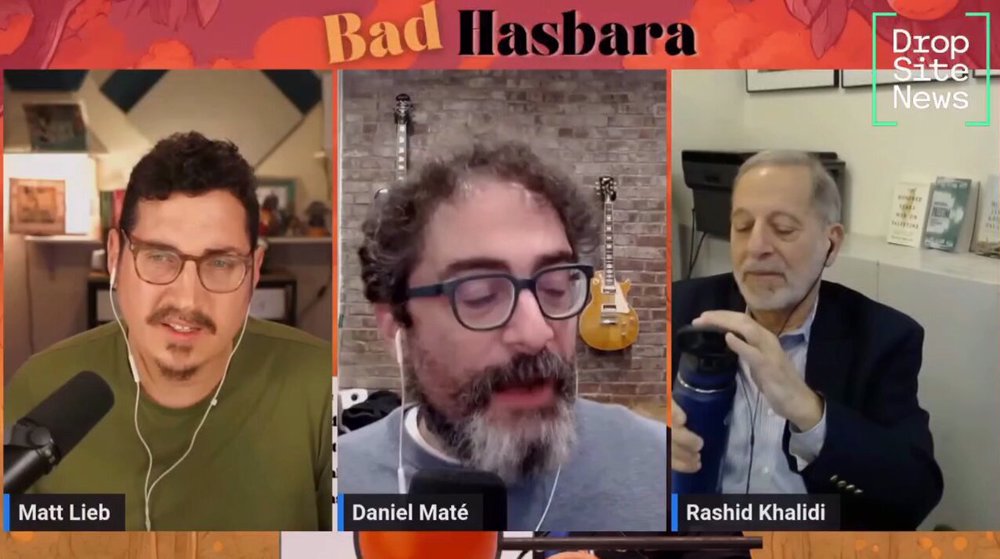
Who is Rashid Khalidi?
Born in November 1948 in New York City, Khalidi is a prominent Palestinian-American historian and author specializing in West Asian studies in general and Palestinian studies in particular.
He holds the chair of Edward Said Professor Emeritus of Modern Arab Studies at Columbia University, where his academic contributions have earned him widespread recognition over the years.
Khalidi also served as the editor of the Journal of Palestine Studies from 2002 to 2020, before transitioning to co-editorship alongside Sherene Seikaly.
Among his notable works are The Hundred Years' War on Palestine and Palestinian Identity: The Construction of Modern National Consciousness, both of which delve deeply into the historical and cultural dimensions of Palestinian identity and struggle.
Khalidi’s research focuses primarily on the history of modern West Asia, with a particular emphasis on the countries of the Southern and Eastern Mediterranean. His work examines the emergence of national identities and the role of external powers in shaping them.
Khalidi has also explored how the media has fostered new senses of community, the impact of education on political identity, and the evolution of regional narratives over the past centuries.
Given his academic background and the significant number of students he has mentored, Khalidi’s recent comments have drawn sharp reactions from historians, activists, and even former students.
Many believe his not-so-overt advocacy of the two-nation theory and recognition of Israeli settlers as natural inhabitants of Palestine has now become more overt with him questioning the Axis of Resistance and its long-running struggle for the liberation of occupied Palestinian territories.
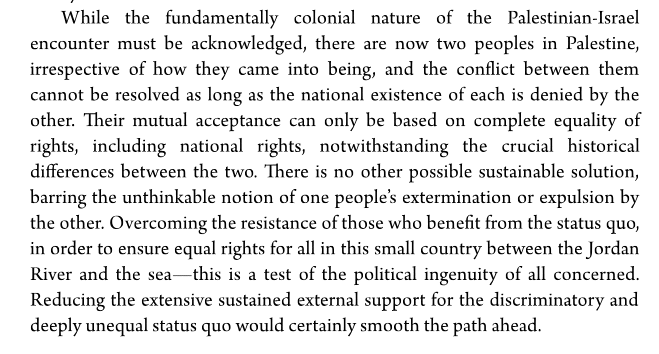
Backlash over Khalidi's latest remarks
Veteran war correspondent and political analyst Elijah J. Magnier criticized Khalidi’s assertions on X (formerly Twitter), pointing out the “key realities” omitted in his remarks about Iran’s strategic role.
Magnier emphasized the Islamic Republic’s “measured responses” to provocations by the US and the Israeli regime, which he argued reflect a strategic approach rather than self-serving interests.
Citing Iran’s retaliation following the US assassination of top anti-terror commander Lieutenant General Qassem Soleimani in Baghdad and Israeli attacks on the Iranian consulate in Syria, Magnier highlighted that Tehran’s actions were calculated and did not demand immediate responses from its allies, including Palestine, Syria, Hezbollah, or Yemen's Ansarullah movement.
Khalidi’s omission of these examples, Magnier suggested, undermines a nuanced understanding of Iran’s role in the broader resistance axis that has been fighting the Zionist occupation for very long.
“Khalidi’s framing seemingly ignores this restraint, underscoring Iran’s dual approach of supporting its allies in the region while independently safeguarding its core national interests,” he stated.
"Iran has consistently shown that while it values these alliances, its primary focus remains on strategic, direct responses to threats against its own assets and leaders.”
A user on X, posting under the name "Dr. msm," highlighted the deep "historic" and "family ties" that bind the countries of West Asia together and by extension the Axis of Resistance.
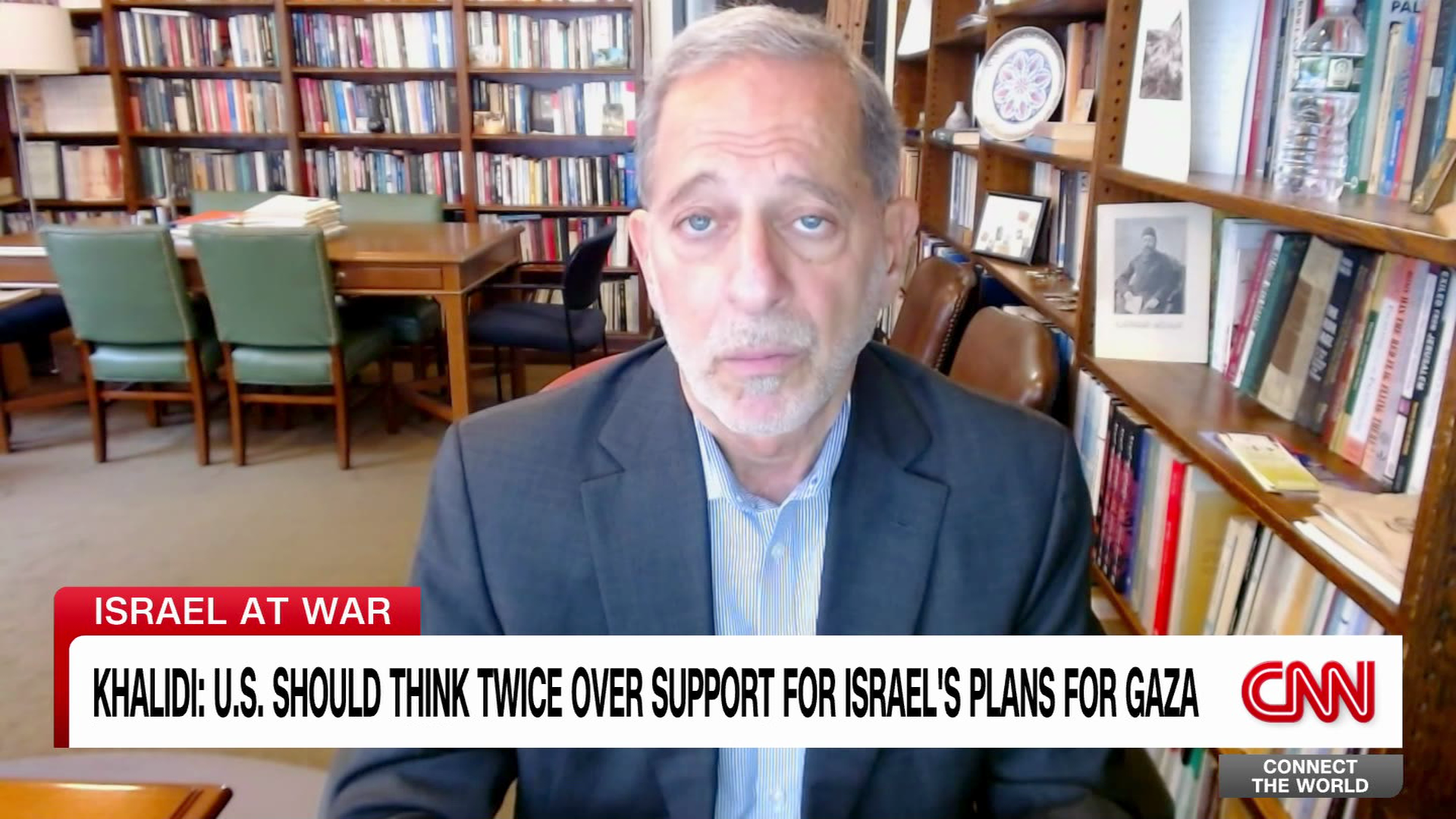
The user pointed to one of Iran's most iconic architectural masterpieces in Isfahan, constructed nearly 500 years ago for a Lebanese scholar from Baalbek who had moved to the Shah’s court.
“He might be a giant, but he is neither a giant of international relations nor, I doubt, of medieval or post-medieval West Asian history—which is amalgamated in significant parts with the history of North Africa--always meeting in Gaza," the user stated, slamming the Palestinian-American scholar.
Another X user, posting under the handle "Commiebob Gazafunds.com," shared an excerpt from Khalidi’s book A Hundred Years’ War on Palestine in which he refers to “Israelis” as “legitimate people in Palestine.”
“Rashid Khalidi could be a prolific historian. However, his reach within US liberal circles was made possible for a number of reasons. One reason is his acknowledgment of Israelis as legitimate people in Palestine," the user wrote, pointing to the author's confused intellectualism.
Prominent Palestinian-American journalist Ali Hasan Abunimah highlighted the significant sacrifices made by the Islamic Republic of Iran and the Lebanese resistance in support of Palestinians.
“Iran and the resistance in Lebanon have done and sacrificed more for the just and lawful armed Palestinian resistance against American-armed genocidal Zionist savagery and evil than anyone else," wrote Abunimah, who is also the editor of the Electronic Intifada website.
"Rashid Khalidi does not speak for me in spitting on and diminishing these sacrifices."
Law professor and legal historian Nina Farnia also criticized Khalidi’s dismissal of the Axis of Resistance, noting that it reflects "his ongoing support for the Palestinian Authority.”
Pertinently, Khalidi has earned a reputation as one of the fiercest supporters of the Palestinian Authority, which has been accused of collaboration with the Israeli occupation in suppressing anti-occupation sentiments in the occupied West Bank through illegal arrests and torture.
Farnia further highlighted Khalidi’s reluctance to condemn the Palestinian Authority.
“What is most immediately troubling is that he doesn’t choose to attack the PA even though it’s doing this now,” referencing his noticeable unwillingness to address the PA’s controversial actions, including a spree of arrests and killings of innocent Palestinians in the occupied West Bank.
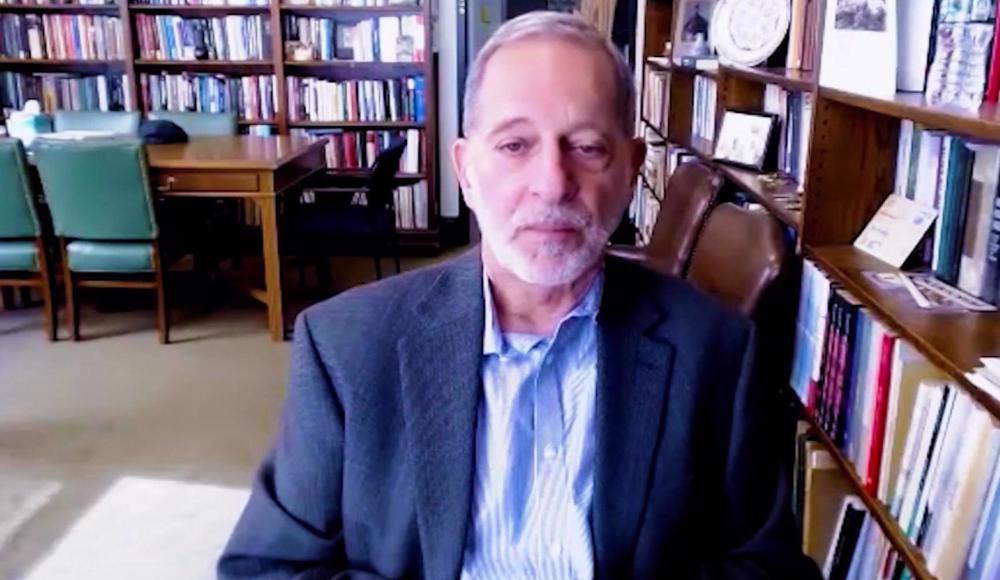
She also described Khalidi’s depiction of resistance as “ahistorical” and raised pointed questions.
“If there is no Axis, who liberated Lebanon in 2000 and 2006? Who has prevented Israel from taking Gaza this past year," Farnia asked, referring to the support Iran provided to Hezbollah and Hamas.
Farnia added that Khalidi’s approach reflects a deeper intellectual shortfall, accusing him of failing to take “national liberation seriously as a political event or analytical category.”
“Such statements speak not just to a historical gap, but to a conceptual gap as well. Rashid does not take national liberation seriously as a political event or analytical category.”
California State University professor As’ad AbuKhalil, one of his students, highlighted historical betrayals endured by the Lebanese people, drawing attention to alliances during Lebanon’s civil war.
"Rashid refers to the Lebanese resistance in the last war as a paper tiger. In comparison to what? To the PLO? The PLO used to run always—LITERALLY—in the face of Israeli invasions. It happened in the invasion of 1978 and of 1982," Abukhalil wrote.
"And if Rashid wants to say that the Lebanese resistance today receives support from Iran, I will say to him: the PLO and the Lebanese National Movement received money and arms from the following countries: USSR, East Germany, Bulgaria, Cuba, China, Hungary, Algeria, Yemen, Libya, Egypt (before Sadat), Syria (in different stages to different factions), Iraq, and a huge amount of money from Gulf countries which managed the glorious revolutionary leadership of Yasser Arafat. Despite all this massive aid, the PLO forces ran away in the face of Israeli advances."
He also hit back at the Palestinian historian on his claim that Iran's support for the Palestinian resistance serves the country's own "national interests" rather than Palestinian interests.
"Iran has been under savage Western sanctions and facing Israeli conspiracies for decades all because of its support for Palestinian and Arab resistance to Israel. It even armed the PFLP, which is a communist non-Shiite organization. How did that help Iran? If Iran were to end its support for Arab resistance, all sanctions would have been lifted immediately," he wrote.

"And if Iran helped Palestinians (and you mock their support for Palestinians when no Arab government EVER in its history—not even the government of Nasser who I admire—helped them as Iran has helped them militarily) for its own interests, why didn’t Arab regime help Palestinians just like Iran? If this would help their national interests."
An X user, identified as C.K., referenced Palestinian historian and academic Nur Masalha, sharing the abstract of Masalha’s 2016 paper.
In the paper, Masalha asserted that “the concept of Palestine is deeply rooted in the collective consciousness of the indigenous people of Palestine and the multicultural ancient past.”
In May 2024, human rights advocate and Assistant Professor of Law Ramy Abdu took to X to criticize Khalidi’s vilification of the Palestinian resistance. “He has embraced Israeli scholars and officials while the BDS movement urged him to honor the academic boycott of Israeli institutions,” Abdu wrote.
Abdu further accused Khalidi of consistently echoing “Zionist perspectives” in his rhetoric on Palestinian resistance, undermining both Palestinian and “Indigenous struggles.”
Legal scholar Maryam Jamshidi also criticized Khalidi’s remarks, describing them as “inconsistent, imprecise, and simplistic.”
She pointed out glaring contradictions in Khalidi’s claims about the Axis of Resistance and Iran.
“So which is it? If the Axis is just about Iran's deterrence, that suggests these groups are basically doing Iran's bidding. If, on the other hand, these groups are independent, then the Axis must also have other purposes that serve those groups’ interests—otherwise, why would they participate,” she stated.
Jamshidi characterized the connection between Iran and the Axis of Resistance as “the product of historical contingencies, the result of different strategic impulses, and based on various political and ideological factors.”
She noted that the Islamic Republic of Iran has long maintained an ideological commitment to confronting “US imperialism and Zionism,” which she described as part of its “raison d'être.”
Press TV’s website can also be accessed at the following alternate addresses:
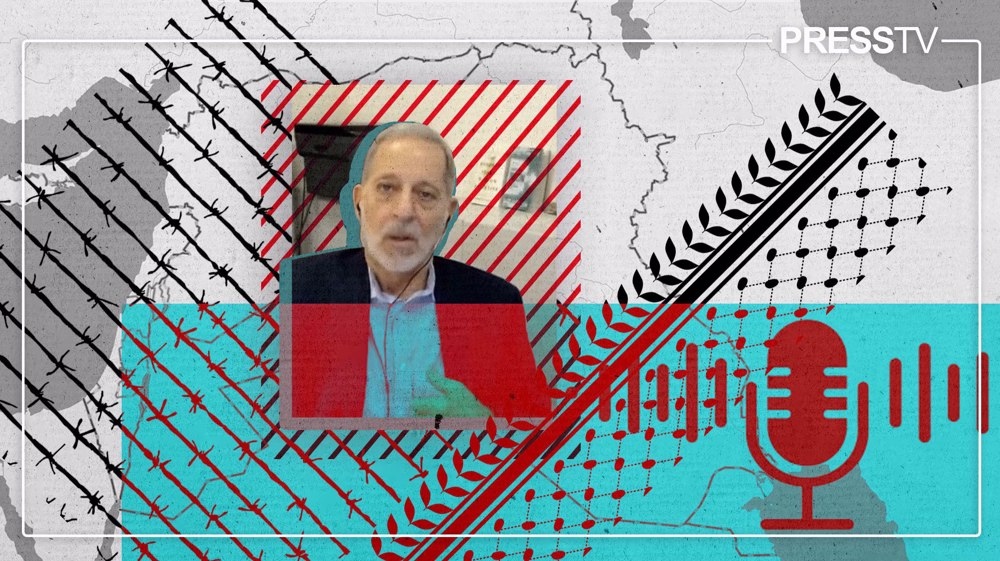

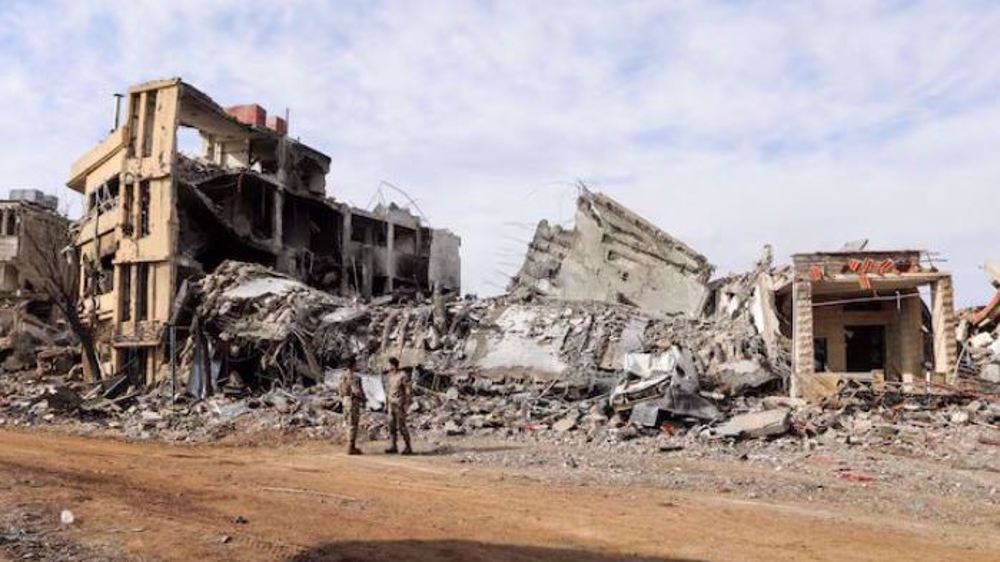
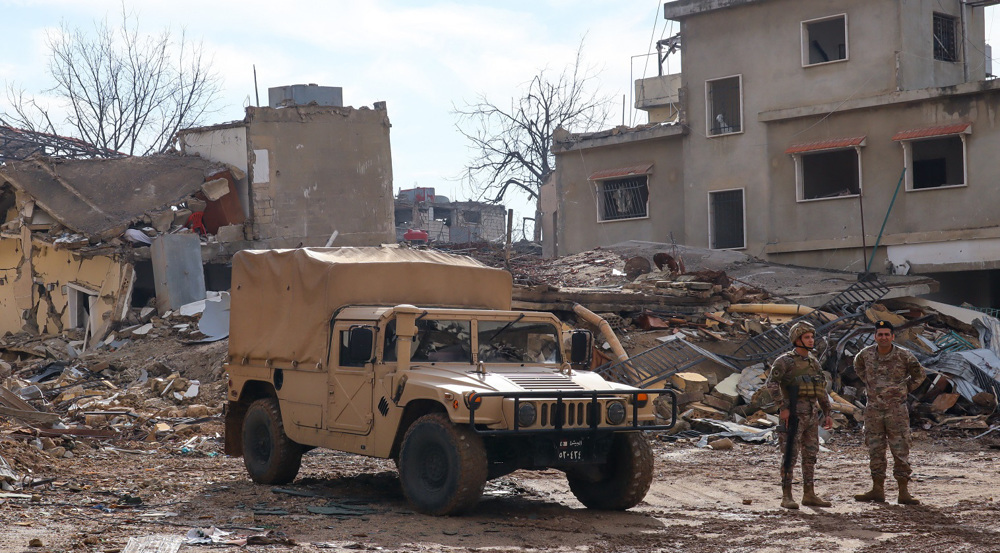



 This makes it easy to access the Press TV website
This makes it easy to access the Press TV website